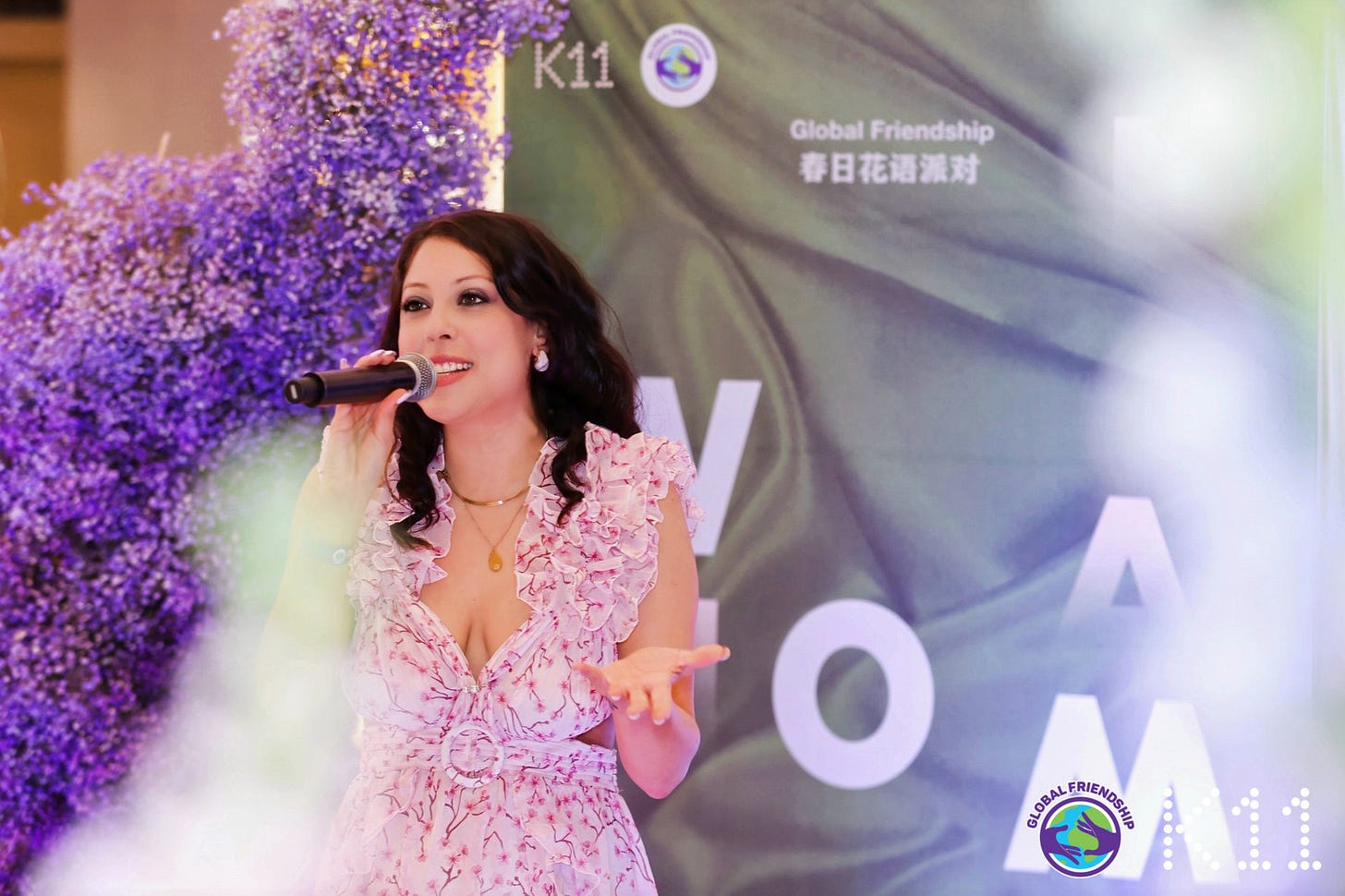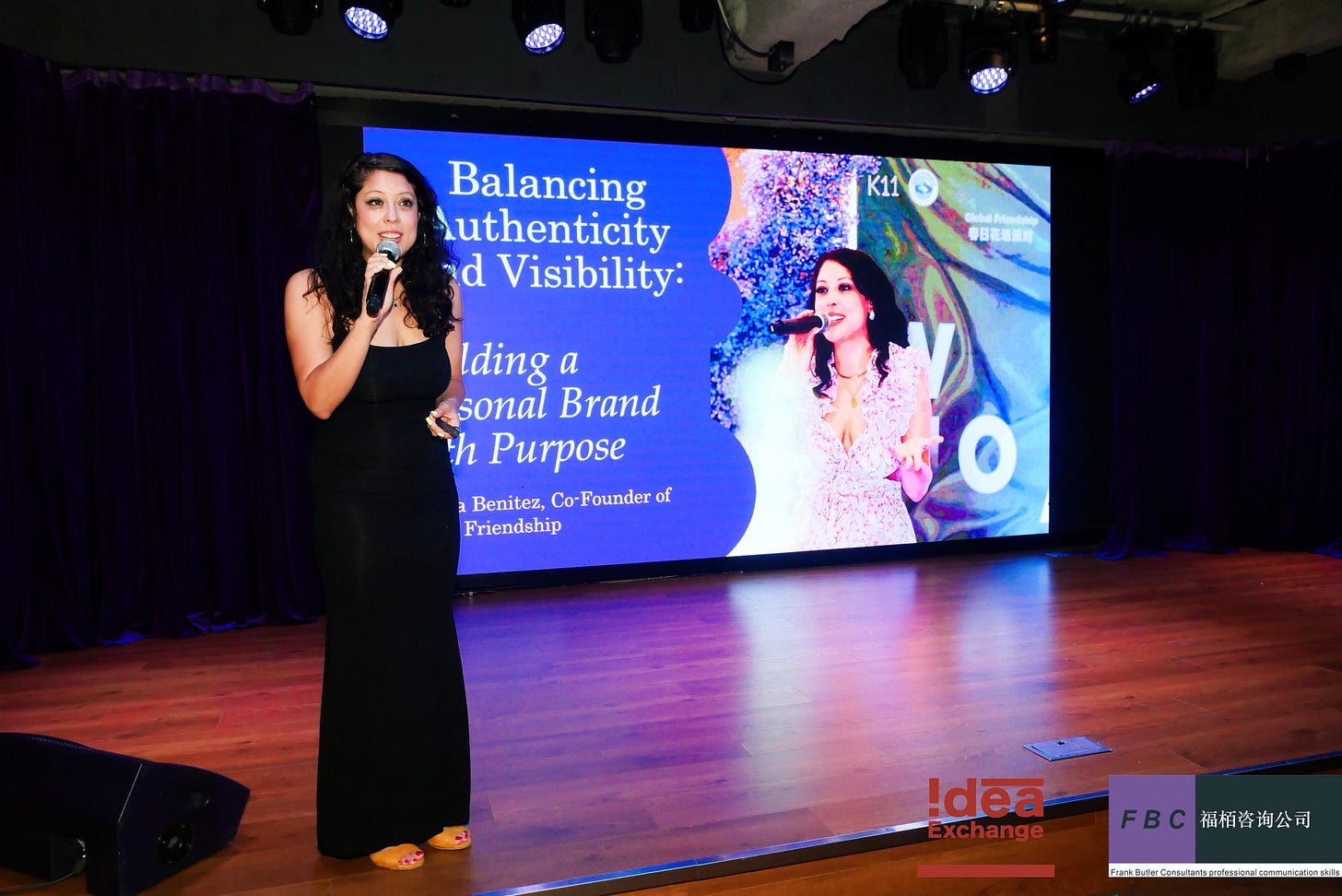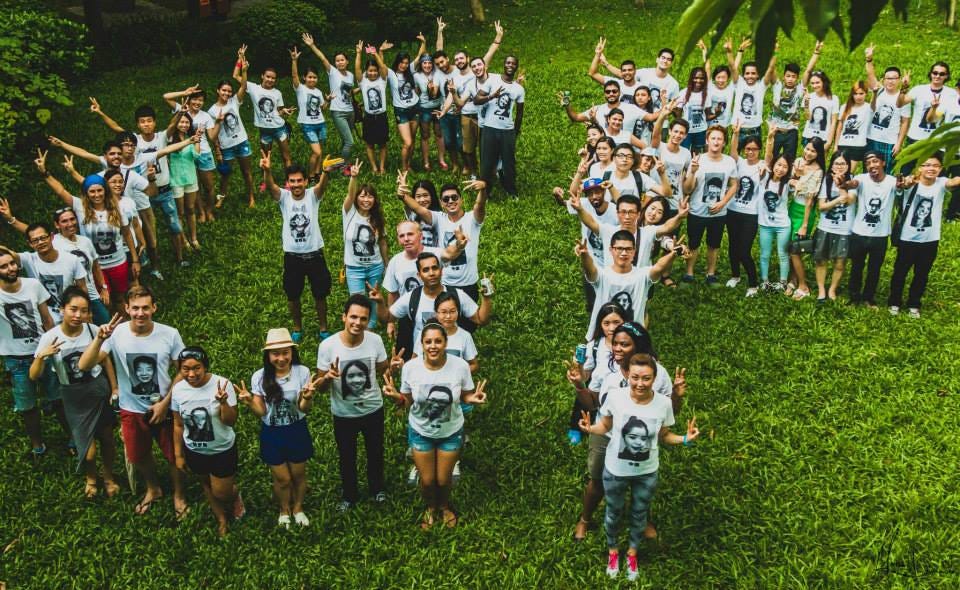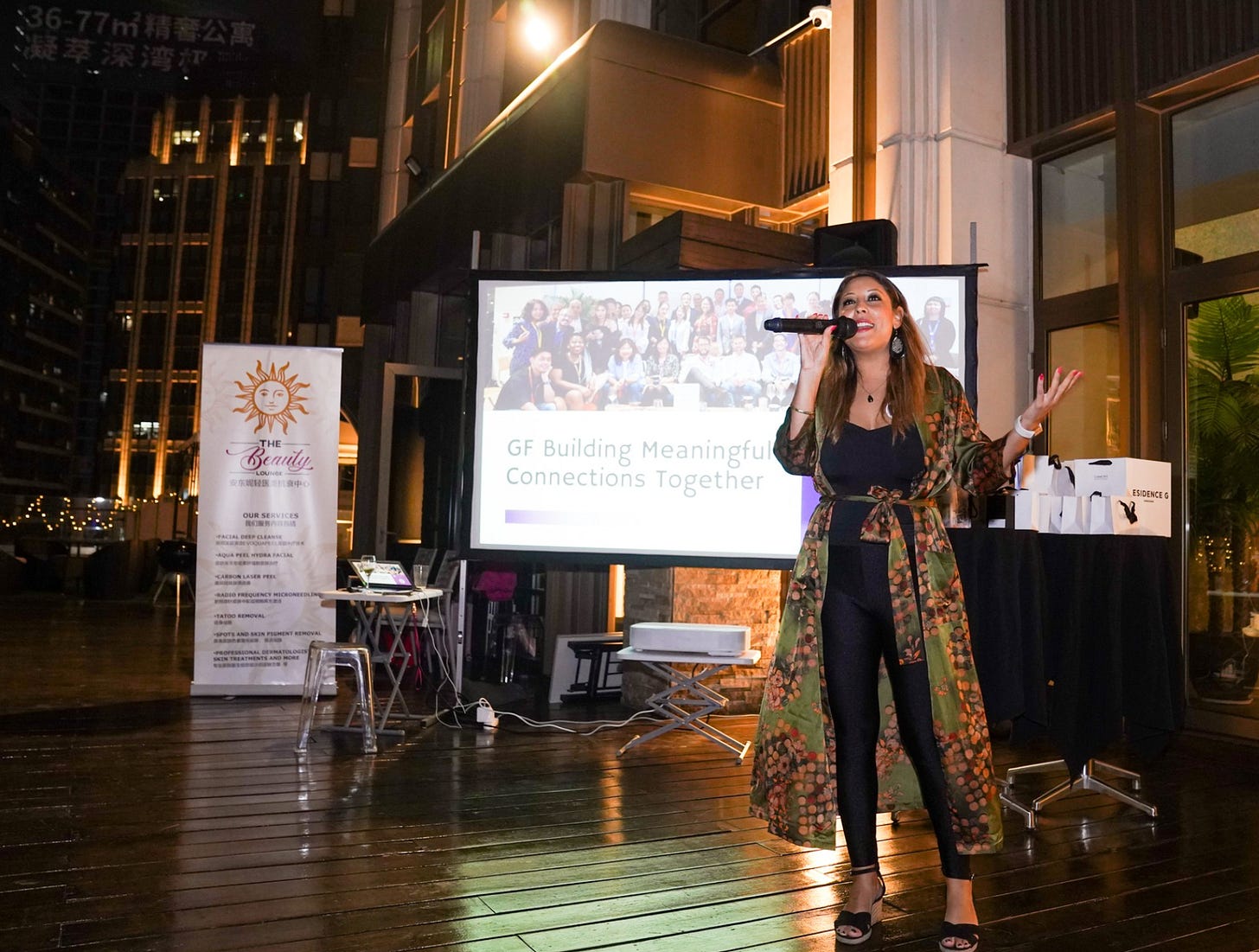Leading with Heart and Boundaries: Lessons from 10 Years of Community Building
What ten years of leading Global Friendship taught about sustainable leadership and the power of knowing when to say no
Ten years ago, two 25-year-olds with backgrounds in social work began organising simple events in Guangzhou parks. Today, Global Friendship has over 20,000 followers and has weathered everything from financial setbacks to a global pandemic. The journey taught founder Fabiola Benitez one of the most important lessons in community leadership: genuine connection requires openness, but lasting impact involves setting boundaries.
"One of the biggest lessons I've had to learn as a community leader is how to balance being genuine and visible with maintaining healthy boundaries," reflects Fabiola, whose decade of leadership offers insights that go far beyond expatriate communities.
Why Being Open Matters
Community leadership today demands a level of personal openness that might have seemed impossible in traditional business structures. For Fabiola, this meant making openness a deliberate choice rather than something that simply occurred.
"I've made it a point to share parts of my personal journey, whether it's about mental health, my fitness challenges, or everyday struggles. I believe that showing vulnerability helps create deeper, more genuine connections."
This isn't the superficial authenticity of corporate personal branding. When community members see their leader confronting genuine challenges — from postpartum fitness struggles to family crises — it encourages others to show up as their true selves too.
The results speak for themselves. Global Friendship's welcoming nature, where "locals and expatriates from all around the world" genuinely connect, doesn't happen by accident. It stems from leadership that demonstrates the kind of authentic relating that the community values.
But adopting openness as a leadership approach has hidden costs that most community builders uncover too late.
When Openness Becomes a Problem
"Being the face of a growing community also means constantly showing up — with energy, excitement, and commitment — before, during, and after events. From promoting initiatives to attending partner activities, there's a high level of engagement expected."
This expectation—often self-imposed—leads to what can be called the community leader's trap. The very openness that encourages connection turns into an ongoing, around-the-clock duty. Members begin to anticipate constant access, energy, and emotional support. The leader who once shared their struggles is now seen as everyone's go-to source of support.
Fabiola learnt this lesson the hard way. Early missteps often led to financial setbacks because she and her co-founder were "still figuring things out"—not only about logistics and marketing but also about how to sustain themselves personally while supporting a growing community.
Learning to Say No
The breakthrough was the result of a change in perspective regarding the true nature of strong leadership.
"I've learned that it's okay to say 'no' sometimes. It's okay to pause, to rest, and to say, 'not today.' Setting those boundaries has been essential to sustaining both my well-being and the long-term vision of GF."
This isn't about losing authenticity or accessibility. It's about understanding that sustainable community leadership needs the same thoughtful planning that creates successful communities from the beginning.
"Being a strong leader doesn't mean doing everything—it means knowing when to step back so I can show up better the next time."
This principle shows up in practice through how the Global Friendship team shares responsibilities. When members like Max needed urgent health support, it wasn't Fabiola handling every detail—team members Patrick and Fiona stepped in with their expertise. When businesses need marketing support, different team members lead those relationships.
"They showed an impressive level of professionalism," notes John Azzo, describing how the team handled his workshop logistics. This demonstrates how sustainable leadership means building systems where the founder doesn't have to be involved in every interaction.
A Framework for Healthy Leadership
Global Friendship's approach offers a practical framework that other community leaders can adapt:
Values-Based Decision Making
The team frequently revisits essential questions: "Does this event help create meaningful connections? Does it promote creativity, unity, and diversity?" These questions help evaluate opportunities and serve as clear guidelines for declining certain ones.
Smart Openness
Personal sharing supports the community's mission rather than occurring randomly. Fabiola shares her struggles to encourage others to feel allowed to be human, without revealing every personal detail.
Rest as Leadership
Understanding that stepping back doesn't mean abandoning — it's about demonstrating sustainable involvement for the benefit of the whole community.
Protecting Long-term Vision
"Setting those boundaries has been essential to sustaining both my well-being and the long-term vision of GF." Individual decisions are assessed based on community sustainability rather than immediate satisfaction.
Learning Through Crisis
The COVID period tested these principles under extreme pressure. "From 2020 to 2023, we had to cancel many events, and a large number of our members left China. Many of those who were very committed to the community ended up leaving."
Instead of exhausting themselves to keep up with pre-pandemic activity levels, the leadership team adopted a listening approach: "We need to listen closely to what people want today, and that's why we're still here, feeling out the pulse of the community and trying to understand what kinds of events and connections people are looking for in China now."
This flexible approach — staying connected to community needs while ensuring leadership sustainability — facilitated Global Friendship's 2024 comeback, including an emotional 10th anniversary celebration that saw the co-founder return to the stage.
Leading Through Service, Not Just Vision
One unexpected insight from Global Friendship's growth is how leadership evolved from organising events to enabling genuine life support. When members face health crises, business challenges, or cultural navigation needs, the community responds with practical help—not just social comfort.
"As always, Global Friendship didn't treat me as a client or policy holder, but as a friend and a member of the community," reflects Max about receiving urgent health support.
This service orientation creates deeper member commitment. As Gülşah Can notes after working with them for a year: "What I appreciate most about Global Friendship is their passion in connecting people." When leaders focus on genuinely serving members' real needs, community loyalty follows naturally.
The business partnerships Global Friendship has developed—from healthcare providers to venue collaborations—demonstrate how service-oriented leadership creates sustainable revenue streams while genuinely helping members. This isn't just about social connection; it's about building infrastructure that supports people's actual lives abroad.
Lessons for New Leaders
For women who are building communities, organisations, or movements internationally, Global Friendship's decade provides valuable insights.
Start with sustainable practices, not just passionate commitment. Fabiola's initial financial setbacks served not only as lessons but also as cautionary signs of leadership habits that couldn't be sustained.
Being open is strategic, not total. Share what aligns with the community's mission and reflects your genuine self, but avoid revealing every personal detail or struggle.
Boundaries protect impact, not just individual well-being. Establishing limits isn't a selfish act—it's crucial for sustaining community well-being over the long term.
Growth requires letting go. As Fabiola notes, "the world has changed, and what people wanted before—or the members who used to be really active—are no longer here." Sustainable leadership adapts rather than clinging to past models.
Build systems that work without you. The strongest communities have teams that can handle member needs and business relationships without the founder being involved in every detail.
The Ongoing Journey
Ten years in, Global Friendship keeps evolving its leadership and community strategies. Fabiola's openness in sharing successes and ongoing challenges—from boundary-setting to adapting after the pandemic—illustrates that sustainable leadership is a continual process, not a final goal.
"When you're building something rooted in human connection, it's easy to get pulled in different directions. But if you stay grounded in your 'why,' everything else becomes clearer—your direction, your impact, and your longevity."
For community leaders balancing openness and boundaries, Global Friendship's journey provides both permission to be authentic and practical strategies for sustainability. The aim isn't achieving perfect balance but making deliberate choices about when to engage and when to withdraw, always prioritising the community's long-term success.
In a world craving genuine leadership, leaders who master balancing transparency with boundaries aren't merely safeguarding themselves—they demonstrate a more sustainable approach to fostering change.
Global Friendship's approach to fostering community provides valuable lessons for leaders managing cultural diversity, responding to crises, and ensuring sustainable development. Their story demonstrates that the most resilient communities form when leaders combine genuine connection with strategic boundaries.
Connect with Global Friendship:
WeChat: GFCommunity
Website: www.globalfriendship.net
Instagram: @gfcommunity_china
Facebook: globalfriendshipchina







